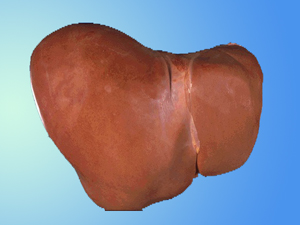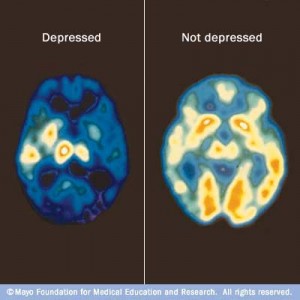Before we start in on the next part of this picture, please keep in mind the idea of a spectrum. Every person whether they experience substance abuse or psychological problems has their own complex story. When it comes to this type of stuff, the rules are never hard and fast. The human condition allows for generalities to exist but usually not the whole picture. The severity or presentation of symptoms is not black or white, all or none. Like this spectrum below, individual truth falls somewhere in between black and white.
For the ease of readability, I may use language that may suggest black or white, but please know that when it comes to humans, anything is possible. Think grey.
The topic of Children of Alcoholics is very complex. There are a number of ways this scene may be happening. Some examples are young children in the home of a mild/moderate/severe alcoholic, teenagers with a mild/moderate/severe alcoholic parent, young adult children that live in the home part time, one or both parents have a substance abuse problem, or being an adult child of a person with mild/moderate or severe alcoholism. Considering all these different types of situations, you can imagine that the developmental process of each stage is different and the family is therefore affected differently.
Because I already wrote one dissertation (this is my actual dissertation!)
And I don't ever want to do that again... I'm having a slight traumatic flashback just looking at that picture... ack!
I'm going to focus on one piece here in this post, (at one end of the spectrum) which is a young child who is raised by an alcoholic parent. A number of sources agree that 1 in 5 kids has experienced an alcoholic parent. That number is staggering... and so sad.
There are lots of resources and foundations out there for this topic, which is great. Here is one, and FYI, I also got lots of information from different organization's websites for this post... (sources are at the end)
Ok, so the level of dysfunction that a child experiences is related to how "non-recovering" (or not sober or trying to get sober) that a parent is. If there are two parents in the home, the relative psychological health of the non substance abusing parent also matters. Alcoholism (or any other kind of substance abuse) can be defined as a major stressor. This stressor has shown -through years and years of research- that children raised by alcoholic parents tend to score lower on intelligence tests, their development is negatively impacted, their coping skills are lower, they have higher levels of depression and anxiety, higher levels of delinquency and an overall negative self image.
Here are some examples of the psychological effects of parents of alcoholism:
Guilt/Shame: the child may see him or herself as the cause of the stressor, a young child often blames the parental drinking on his/her behavior.
Anxiety: fears about anything and everything. will my mom/dad be drunk tonight? will they be angry at me? will anyone make me dinner? will I have to take care of my dad tonight? will my parents fight tonight?
Inability to have close relationships: the alcoholic parent has disappointed the child many times, can she trust that others will not let her down? Is it normal to be sad and drunk, is that what being married as an adult is like?
Limited "emotional intelligence": The alcoholic parent has limited emotions because the addiction works to numb negative emotions. The child is not modeled a wide range of emotions and therefore may not possess emotional skills above the basic and negative emotions.
Confusion: Consistency is usually not a part of the alcoholic household. Mealtimes, schedules, etc are rarely maintained. Parental emotion and love is unpredictable.
Anger: The child feels angry at the parent for drinking and angry at others for not protecting them from the situation.
Depression: Feelings of helplessness occupy the child's mind. hopelessness = depression
Spousification- Bluring the boundary of spouse and child. Children often share beds with the non alcoholic spouse. Children are often left in charge of inappropriate responsibilities (like the check book or all the cooking). Parents tend to rely on their children to meet their emotional needs, which is very confusing and harmful for children.
Overachieving: Buckle down and do. better. to. get. the. heck. out.
Isolation: There is usually much embarrassment and shame about the drinking parent as a bad secret. Friends are not typically invited to visit the house because of the unpredictability factor. Asking for help can be scary too, because it means admitting a problem.
It's important to mention that there are plenty of kids who show great resiliency and can be a product of this type of home and show little to no effects. But, resiliency is another blog topic for another day...
So, what happens when this child launches him or herself from their home nest? We all know life is hard, but imagine facing our all too often ugly world with that set of tools.
Adult Children of Alcoholics is next up.
Stay tuned!
note: If you know a child who is in this situation, don't be afraid to reach out to him or her and offer support or help. There are many organizations equipped to help a child and his or her family cope with this serious problem. Reaching out can be risky and often awkward, but it will be undoubtedly a good thing if you help to protect a child and help a family system that is fighting the battle of addiction.
Sources:

























